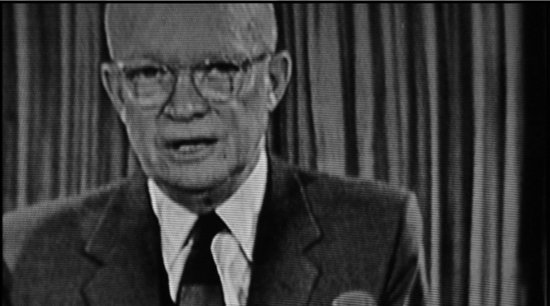“Grisly attacks and other sectarian violence unleashed by last week’s bombing of a Shiite Muslim shrine have killed more than 1,300 Iraqis, making the past few days the deadliest of the war outside of major U.S. offensives, according to Baghdad’s main morgue.” While the Iraqi cabinet disputes the 1300 figure as “inaccurate and exaggerated,” the news from Baghdad is still tragic and horrifying: After the bombing of the Golden Mosque last week, Iraq appears to be in freefall, with 68 more casualties just today, and civil war looms. Dubya’s response so far: Civil war won’t happen, and, if it does, it’s y’all’s problem.
Tag: War in Iraq
The Dems Redeploy.
According to the Globe, the Dems are beginning to coalesce around a plan of “strategic redeployment” in Iraq. According to the plan, co-authored by Reagan assistant Defense secretary Lawrence Korb, “all reservists and National Guard members would come home this year. Most of the other troops would be redeployed to other key areas — Afghanistan, Southeast Asia, and the Horn of Africa — with large, quick-strike forces placed in Kuwait, where they could respond to crises in neighboring Iraq.“
Abu Ghraib Revisited.
To the consternation of the Dubya administration, the Sydney Morning Herald posts more horrifying and previously unpublished pictures from Abu Ghraib. (Warning: They’re grisly, as you might expect.) Why doesn’t Cheney want to ban this flagrantly unAmerican behavior again? He must realize this type of national disgrace makes us hypocrites before the world. [First seen at Ed Rants/Blivet.] Update: Walter Shapiro: “Abu Ghraib is not an issue of partisan sound bites or refighting the decision to invade Iraq. Grotesque violations of every value that America proclaims occurred within the walls of that prison.” Salon has more.
SOTU ’06.
A quick note on Tuesday’s State of the Union: I actually think Dubya has delivered some well-crafted speeches (1/23) in the past, even if I disagree with almost all of their content. This wasn’t one of them. Except for the “America is addicted to oil” line (which Jimmy Carter basically said over 25 years ago) and the “human-animal hybrid” goofiness (which, as Crooked Timber points out, might mean trouble for diabetics), there wasn’t a single memorable moment throughout, just more of the same “9/11” and “freedom, yeah” grandstanding. (And Kaine was no better — I like to think I’m more interested in politics than most people, and I was bored stiff after a minute or two. Nice fireplace, tho’.) If the White House was looking for this address to reverse their ailing fortunes, a la Clinton in ’98, my guess is that they failed. (Pharyngula link via Now This.)
Fight Club.
“In the councils of government, we must guard against the acquisition of unwarranted influence, whether sought or unsought, by the military-industrial complex. The potential for the disastrous rise of misplaced power exists and will persist. We must never let the weight of this combination endanger our liberties or democratic processes.” That flaming liberal Dwight Eisenhower’s somber farewell address to the nation is the historical and thematic anchor for Eugene Jarecki’s documentary Why We Fight, a sobering disquisition on American militarism and foreign policy since 9/11. In essence, Why We Fight is the movie Fahrenheit 9/11 should have been. Like F911, this film preaches to the choir, but it also makes a more substantive critique of Dubya diplomacy and the 9/11-Iraq switcheroo, with much less of the grandstanding that marred Moore’s earlier documentary (and drove right-wing audiences berzerk.)
Sadly, the basic tale here is all-too-familiar by now. Ensconced in Dubya’s administration from the word go, the right-wing think-tank crowd (Wolfowitz, Perle, Kristol, etc.) used the tragedy of 9/11 as a pretext to enact all their neocon fantasies (spelled out in this 2000 Project for a New American Century report), beginning in Iraq. Taken into consideration with Cheney the Military-Contractor-in-Chief doling out fat deals to his Halliburton-KBR cronies from the Vice-President’s office, and members of Congress meekly signing off on every military funding bill that comes down the pike (partly because, as the film points out, weapons systems such as the B-1 or F-22 have a part built in every state), it seems uncomfortably clear that President Eisenhower’s grim vision has come to pass.
To help him rake this muck, Jarecki shrewdly gives face-time not only to learned critics of recent foreign-policy — CIA vet Chalmers Johnson, Gore Vidal (looking unwell) — but also to the neocons themselves. Richard Perle is here, saying (as always) insufferably self-serving things, and Bill Kristol glows like a kid in a candy store when he gets to talk up his role in fostering Dubya diplomacy. (Karen Kwiatkowski, a career military woman who watched the neocon coup unfold within the corridors of the Pentagon, also delivers some keen insights.) And, when discussing the corruption that festers in the heart of our Capitol, Jarecki brings out not only Charles Lewis of the Center for Public Integrity but that flickering mirage of independent-minded Republicanism, John McCain. (In fact, Jarecki encapsulates the frustrating problem with McCain in one small moment: Right after admitting to the camera that Cheney’s no-bid KBR deals “look bad”, the Senator happens to get a call from the Vice-President. In his speak-of-the-devil grimace of bemused worry, you can see him mentally falling into line behind the administration, as always.)
To be sure, Why We Fight has some problems. There’s a central tension in the film between the argument that Team Dubya is a corrupt administration of historical proportions and the notion that every president since Kennedy has been party to an increasingly corrupt system, and it’s never really resolved satisfactorily here. Jarecki wants you to think that this documentary is about the rise of the Imperial Presidency across five decades, but, some lip service to Tonkin notwithstanding, the argument here is grounded almost totally in the Age of Dubya. (I don’t think it’s a bad thing, necessarily, but it is the case.) And, sometimes the critique seems a little scattershot — Jarecki seems to fault the Pentagon both for KBR’s no-bid contracts and, when we see Lockheed and McDonnell-Douglas salesmen going head-to-head, for bidding on contracts. (Still, his larger point is valid — As Chalmers Johnson puts it, “When war becomes that profitable, you’re going to see more of it.“)
Also, the film loses focus at times and meanders along tangents — such as the remembrances of two Stealth Fighter pilots on the First Shot Fired in the Iraq war, or the glum story of an army recruit in Manhattan looking to turn his life around. This latter tale, along with the story of Wilton Sekzer, a retired Vietnam Vet and NYPD sergeant who lost his son on 9/11 and wants somebody to pay, are handled with more grace and less showmanship than similar vignettes in Michael Moore’s film, but they’re in the same ballpark. (As an aside, I was also somewhat irked by shots of NASA thrown in with the many images of missile tests and ordnance factories. Ok, both involve rockets, research, and billions of dollars, but space exploration and war are different enough goals that such a comparison merits more unpacking.)
Nevertheless, Why We Fight is well worth-seeing, and hopefully, this film will make it out to the multiplexes. If nothing else, it’ll do this country good to ponder anew both a president’s warning about the “disastrous rise of misplaced power,” and a vice-president’s assurance that we’ll be “greeted as liberators.”
Send in Sgt. Brockovich.
“The water expert said he told company officials at the base that they would have to notify the military. ‘They told me it was none of my concern and to keep my mouth shut,’ he said.” Ah, the perks of a no-bid contract. As e-mail records prove, those patriots at Halliburton, Dick Cheney’s favorite corporate cronies, have been knowingly exposing some soldiers to contaminated water, despite being warned by their own employees about the danger. “Another former Halliburton employee who worked at the base, Ken May of Louisville, said there were numerous instances of diarrhea and stomach cramps.”
Red Letterman Day.
“I’m not smart enough to debate you point to point on this, but I have the feeling, I have the feeling about 60 percent of what you say is crap.” Along the lines of (2006 Oscars host) Jon Stewart on Crossfire in 2004, a driven-to-anger David Letterman goes after guest Bill O’Reilly on Cindy Sheehan, the war in Iraq, and his “fair and balanced” drivel. “I agree to you, with you that we have to support the troops. They are there, they are the best and the brightest of this country…however, that does not eliminate the legitimate speculation and concern and questioning of ‘Why the Hell are we there to begin with?’” (Via Dumbmonkey.)
Lies about Lies.
Thanks to more lies emanating from the Dubya administration, the Congressional Research Service is forced to set the record straight: Dubya saw more prewar intelligence than Congress. “The Bush administration has routinely denied Congress access to documents, saying it would have a chilling effect on deliberations. The report…concludes that the Bush administration has been more restrictive than its predecessors in sharing intelligence with Congress.“
Mea Culpa, Sort-of.
“It is true that much of the intelligence turned out to be wrong. As president I am responsible for the decision to go into Iraq.” In his final speech on Iraq before tomorrow’s elections, (text) Dubya admits the case for war was FUBAR, while insisting it was a good idea anyway. (“The United States did not choose war — the choice was Saddam Hussein’s.“) Of course, Bush neglected to mention that it was he, Cheney, Rumsfeld, et al who cherry-picked through the available intelligence and continued to recite claims they knew to be false. Still, for someone who’s seems pathologically incapable of accepting reality at times, this has to be considered a step forward.
Breaking all the Rules (of Law).
An ugly day for American values around the world: In Iraq, an investigation inaugurated after the recent discovery of secret prisons in Baghdad uncovers at least 120 victims of torture and/or abuse in prisons run by the new Iraq Interior Ministry. “Prisoners had their bones broken and their fingernails pulled out, were subjected to electric shocks and had burning cigarettes crushed into their necks and backs, said the Iraqi official.” And, elsewhere, a European investigation suggests that the CIA were in fact holding prisoners illegally in Europe, until they were surreptitiously moved to North Africa after the story broke. Charming. So is this what Dubya meant when he said “we are determined to show the meaning and promise of liberty” to the world? If so, I’d remind him of the Lincoln quote he used in the same inaugural address: “Those who deny freedom to others deserve it not for themselves; and, under the rule of a just God, cannot long retain it.“



